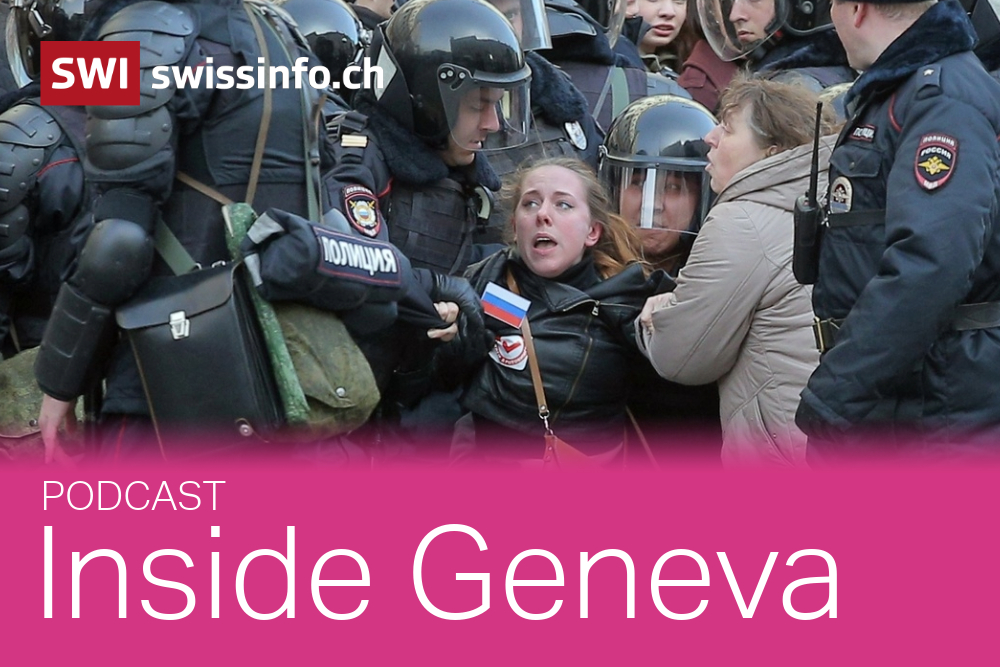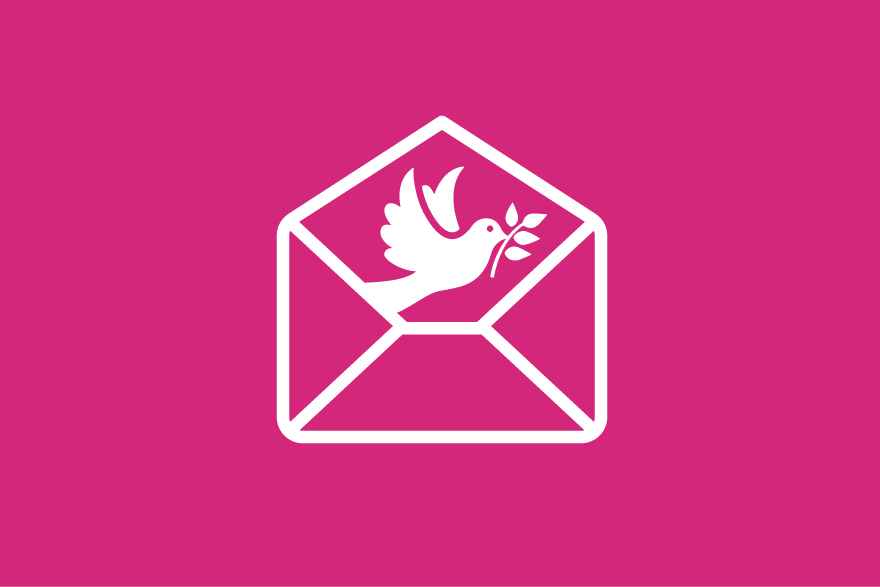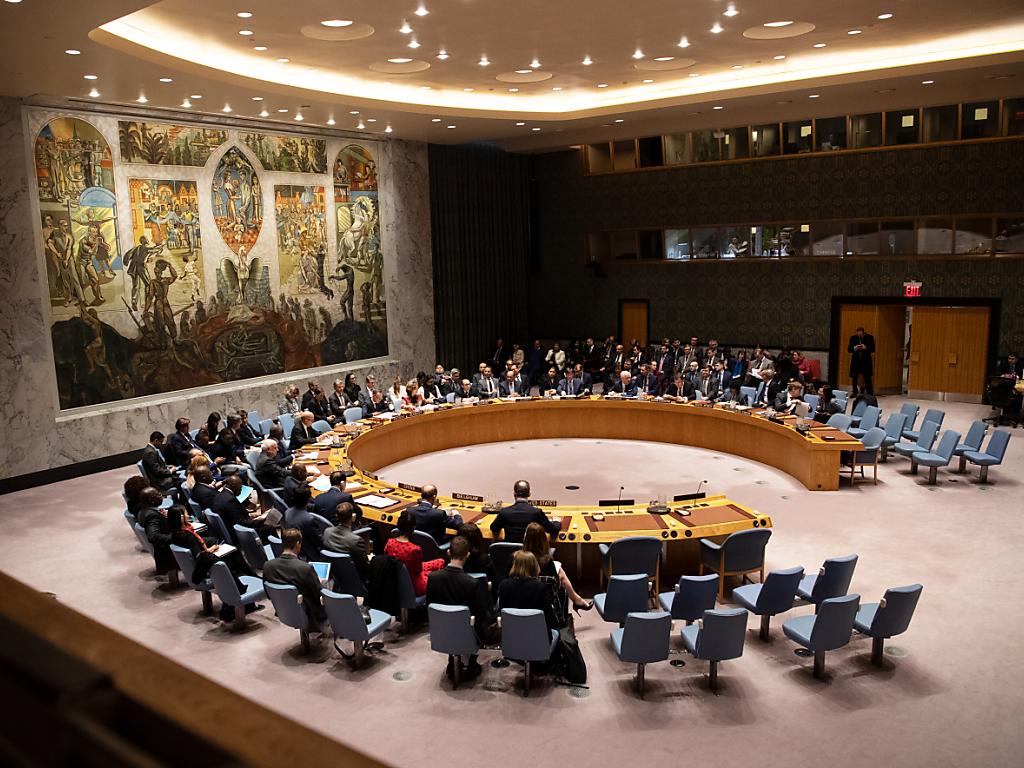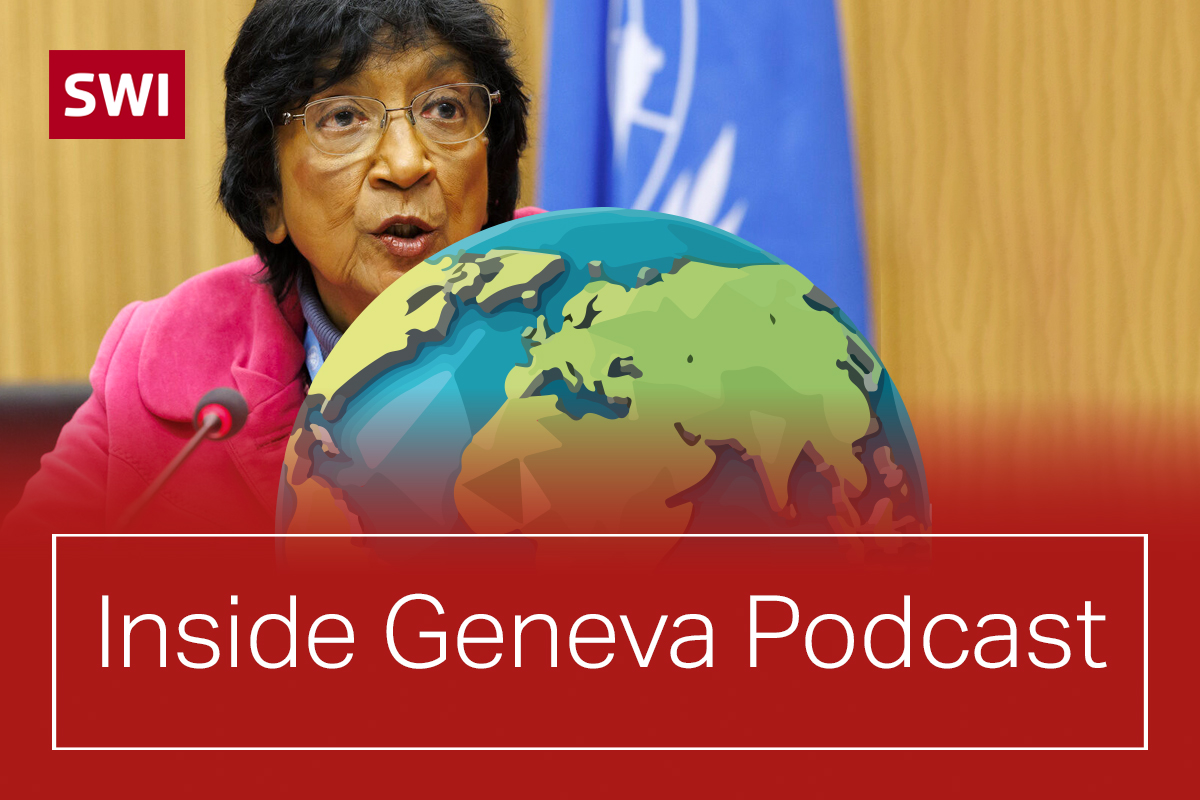Inside Geneva goes to New York
I’ve got a confession to make. In all my years as a United Nations (UN) correspondent, and over several visits to New York, I’ve never actually been inside the UN headquarters there. But last week, I had the opportunity and was privileged to be invited to moderate a side event at the UN in New York, organised by the UN Special Rapporteur on Human Rights in Russia, Mariana Katzarova.
It was also, of course, a great opportunity to take our Inside Geneva podcast to New York and gather some perspectives from the political heart of the UN – a heart that many here at the UN’s humanitarian hub in Geneva sometimes doubt is still beating.

More
Inside Geneva goes to New York: what really happens at the UN?
Katzarova’s side event included former Russian political prisoners, among them Vladimir Kara-Murza, who was finally freed in a historic prisoner swap in August. The aim of the event was to remind UN diplomats that, inside Russia itself, Putin is brutally repressing all dissent. Lawyers, journalists, human rights defenders, and anyone who might question anything about his leadership.
‘‘The situation with political prisoners in Russia today is no longer a crisis, it’s a catastrophe,” Kara-Murza told his New York audience. “We now have more political prisoners in Russia alone than there were in the whole of the Soviet Union, so that’s 15 countries put together.”
+ Listen and subscribe to the latest episodes of Inside Geneva here
Overly simplistic view
However, in New York, where the discussion of human rights issues is neither as in-depth nor as nuanced as it is in Geneva, it was not so easy to get that point across. The focus for many member states has been on Ukraine and the abuses committed by Russia there.
Events inside Russia – a country many Western diplomats view themselves at war with – don’t get much attention, despite the fact that those brave enough to resist Putin are the very ones we really need to support, if we eventually want to have a friendly neighbour rather than an aggressive autocrat in the Kremlin.
+Read more: the future of human rights in Russia
“I think it’s more difficult to get the human rights message [across] here in New York at the General Assembly,” Katzarova told Inside Geneva. “But hopefully we will be heard.”
Two people who were listening were Louis Charbonneau, UN director of Human Rights Watch and Dawn Clancy, a UN correspondent in New York. Both join us on the podcast.
“Russian human rights defenders need to be supported,” Charbonneau told me. “They need to be nurtured. And there needs to be attention to the work they’re doing. It takes so much courage to be a human rights defender in Russia.”
Clancy, after attending the side event and hearing often harrowing evidence of the treatment of Russian dissidents, confessed herself in equal parts enlightened, moved and shocked. But, she admitted, trying to bring this particular subject to the attention of her editors might prove tricky. “If I bring this up, you know, [they might say:] ‘Why are you talking about Russia? They invaded Ukraine.’ But Russia is a country, it’s people.”

More
International Geneva
The paralysis of the UN Security Council
Trying to get attention for a topic like this isn’t only hindered by a black-and-white view of the world. The years-long paralysis at the UN Security Council, dominated by the veto-wielding big powers – the US, Russia, China, the UK and France – is also a huge obstacle.
As Charbonneau points out, nearly every conflict of the last decade has foundered on the lack of agreement among the permanent five. “There is Gaza, the situation in Sudan, Myanmar, Syria – so many conflicts and humanitarian disasters, and there’s an inability of member states to reach an agreement.”

More
The UN Security Council is failing – this is why
‘‘I do have moments where I perhaps would like to stand up in the middle of the chamber and say: ‘Hey, do something!’”, confides Clancy. “But that’s not professional and I would lose my press pass.”
Competition for the spotlight
As if that wasn’t enough of an obstacle, when Katzarova arrives in New York to deliver her latest report (Human rights in Russia; a tool for repression at home, aggression abroadExternal link), she finds herself vying for attention with other UN special rapporteurs and human rights experts.
Strolling through the corridors towards the General Assembly, I bump into Navi Pillay, former UN Human Rights Commissioner and now chair of the commission of inquiry into human rights in Israel and the Occupied Territories. She’s in town to deliver her report to member states as well.

More
Inside Geneva talks to Navi Pillay: from the apartheid regime to the UN
The commission of inquiry for Ukraine is also present, as is Francesca Albanese, the UN Special Rapporteur on the Occupied Territories. All have reports, all want attention. Some will get more than others, all may have a long wait before there is any concrete action from that ossified Security Council.
To hear more about those few days in New York, and how the UN Special Rapporteur for Human Rights in Russia got on, please listen to Inside Geneva, it’s a lively and engaging episode.

More
What to expect when Switzerland heads UN Security Council
I will just leave you with the reminder from Katzarova herself, that, whatever the immediate national strategies of the UN Security Council members, there are certain fundamental truths they cannot avoid forever. “For peace and security, human rights are the core. Without human rights we cannot have peace or security.”

In compliance with the JTI standards
More: SWI swissinfo.ch certified by the Journalism Trust Initiative









You can find an overview of ongoing debates with our journalists here . Please join us!
If you want to start a conversation about a topic raised in this article or want to report factual errors, email us at english@swissinfo.ch.